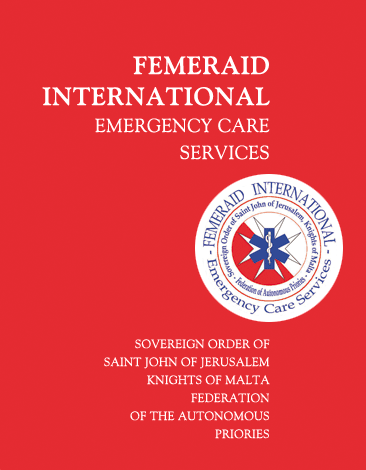The Air Rescue Team of FEMERAID International informs all our members, Knights and Dames of the Sovereign Order of Saint John of Jerusalem, Knights of Malta, Federation of the Autonomous Priories (KMFAP) about the followings:
Food Supplements, When and How to Take
Every day, a significant number of persons around the world consume vitamin and mineral supplements, with a wide range of options available that feature numerous combinations. While a balanced diet rich in healthy foods should be your primary approach to fulfilling daily nutritional needs, there are circumstances where additional vitamins or minerals may be necessary.
In such cases, consider the following recommendations.
When is the optimal time to take your vitamin and mineral supplements? You can take them at any time. However, certain vitamins are better absorbed when taken with food, so it may be beneficial to consume them alongside a meal or snack. This practice can also help avoid potential stomach discomfort that may arise from taking supplements on an empty stomach.
Vitamins C and the B complex (including B1, B2, B3, B5, B6, B7, B9, and B12) can be taken with or without food, although it is advisable to take B12 with a meal for optimal absorption. Vitamin C is best taken two hours after a meal to enhance its effectiveness.
Vitamins A, D, E, and K require dietary fat for proper absorption, so if you maintain a healthy, plant-based diet that includes sources such as avocados or nuts, you may not need additional supplements.
For those taking iron supplements, it is recommended to do so on an empty stomach, ideally with water or lemon juice, as vitamin C can enhance iron absorption. However, avoid combining iron with calcium or high-calcium foods, as these can hinder iron absorption.
High doses of minerals can compete for absorption, so it is advisable not to take calcium, zinc, or magnesium supplements simultaneously. These minerals are generally better tolerated when taken with food. Also, avoid taking any individual mineral with a multivitamin or antioxidant formula that contains beta-carotene or lycopene.
If you are pregnant, be cautious with vitamin A intake, as doses exceeding 10,000 IU per day can cause birth defects. Extra folic acid and iron are crucial for a healthy pregnancy and are typically included in most prenatal vitamins. However, some prenatal vitamins may exacerbate nausea, particularly those containing iron. It is often beneficial to take prenatal vitamins with a light snack before bedtime.
Certain supplements can interact with chronic medications. For instance, if you are taking a blood thinner like warfarin, even a small quantity of vitamin K in supplements can diminish its effectiveness. Additionally, consuming over 1,000 mg of vitamin E daily may increase the risk of bleeding. The intake of calcium, magnesium, or iron within a four-hour window can also impact the efficacy of thyroid medications. The recommended daily allowance indicates the appropriate amount of a nutrient to consume based on age and sex. High doses of these nutrients can lead to side effects ranging from fatigue and diarrhoea to kidney stones or damage to organs.
20th November 2024
Dr. Nuno Gonçalo Cosmelli
Air Physician
Director of Air Rescue Service
General Secretary of FEMERAID International




